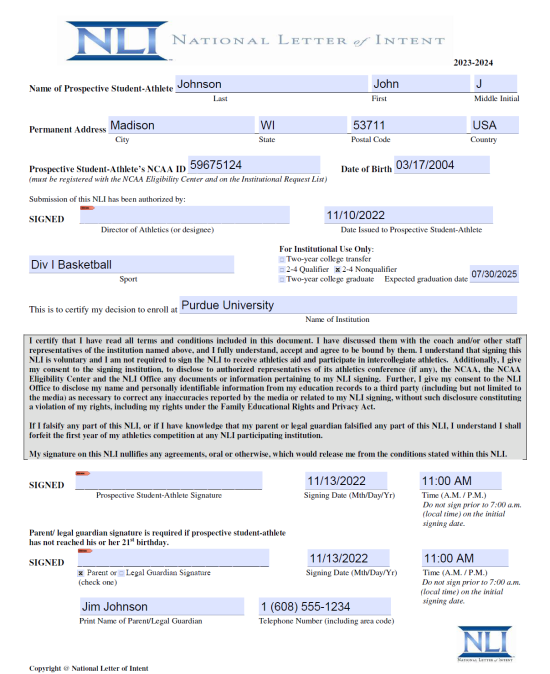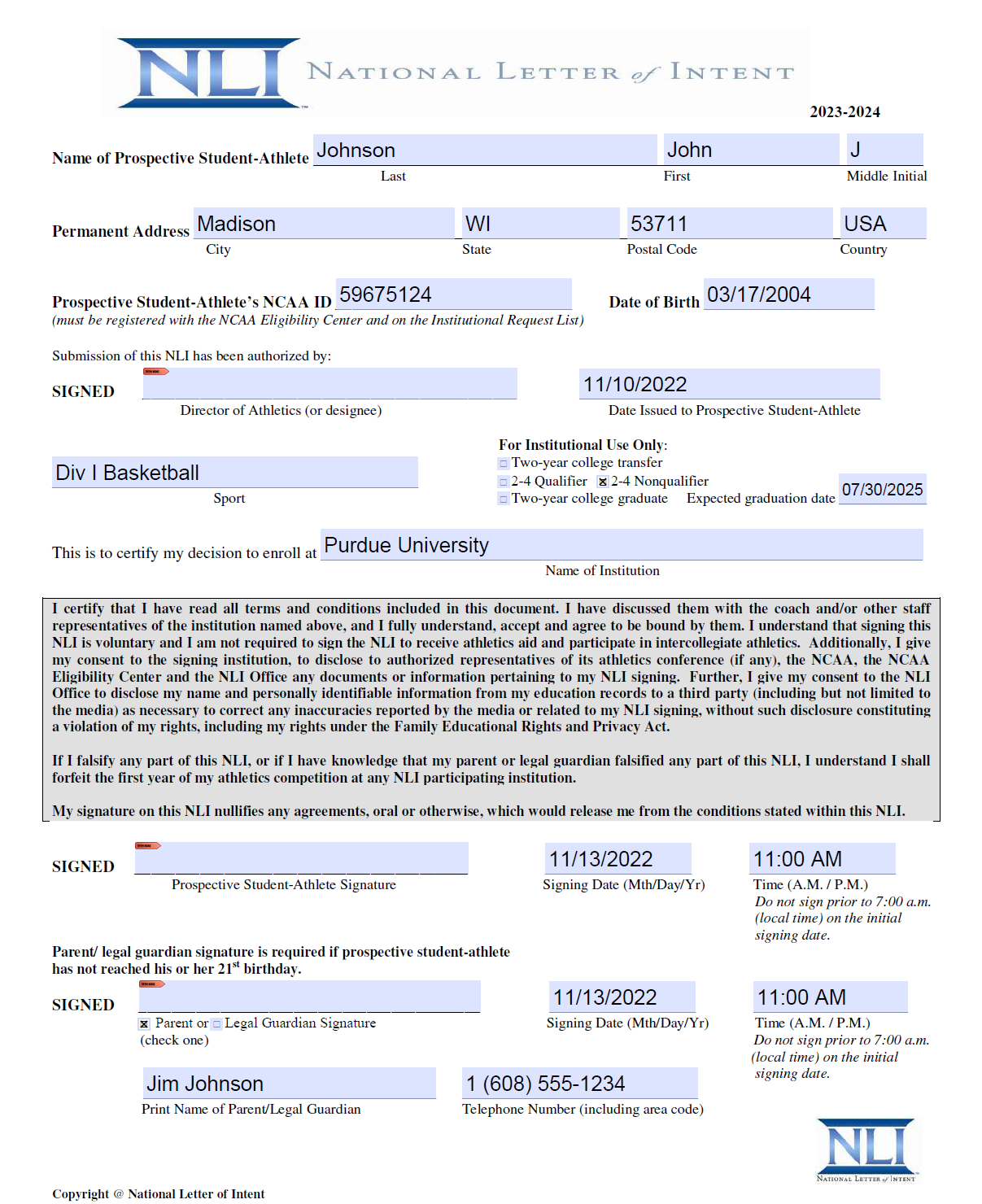Purpose of an NLI
A National Letter of Intent is a voluntary form sent to student-athletes to bind them to one year of academics and a one-year athletics scholarship opportunity.
Many institutions participate in the NLI program, and the letter can be beneficial for both them and the prospective students for the following reasons:
- Student-athletes are guaranteed an athletic scholarship for one year, which enables them to focus on their upcoming academic performance and athletic role at the institution.
- Colleges and universities benefit from securing the player for their athletics program and having the student commit to the academic institution.
Sample
The National Letter of Intent website provides updated official documents for institutions. The image below is provided as an example.

Signing Dates
The NCAA Eligibility Center and the Collegiate Commissioners Association (CCA) have designated specific dates when student-athletes can sign an NLI.
Signing outside of the established dates will render the letter of intent void. Prospective students can refer to the National Letter of Intent website for official and updated, institution-specific NLIs..
NLI Release Request
Since an NLI is a binding contract, the only way a student-athlete can get out of their obligations is by completing a release request form, which can be completed online through the NLI website.
The signing institution has the right to deny the release, meaning that the student must attend school and participate in their chosen sport. Students are given two chances to appeal the request denial to the NLI Committee.
